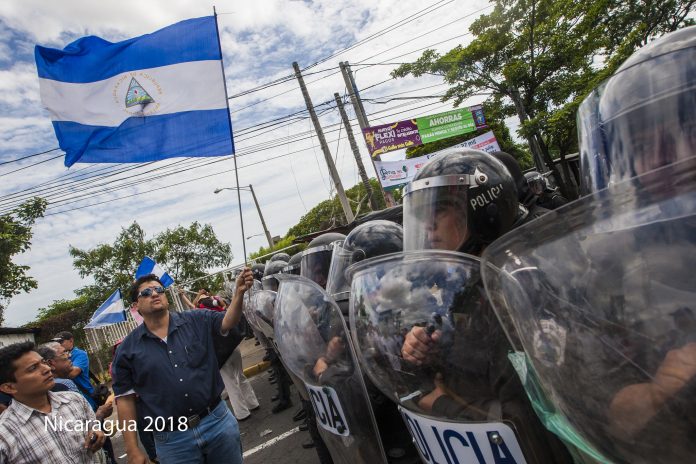As the death toll mounts in Nicaragua, UN officials accuse the government and its allies of torture, killings and arbitrary arrests.
Speaking to Deutsche Welle, (DW), Germany’s international broadcaster, Nicaraguan-born human rights campaigner Bianca Jagger said the regime of Daniel Ortega ‘acts despicably’.
“This government cannot continue and we need Daniel Ortega to go,” said Jagger, who serves as a goodwill ambassador for the Council of Europe, is a senior representative of Amnesty International USA, and the founder and head of the Bianca Jagger Human Rights Foundation.
As reported by DW, the unrest in Nicaragua seems set to escalate, with the UN’s human rights office accusing the police and the government of killings, torture, and unlawful imprisonment on July 17.
Government forces repeatedly opened fire at protesters, including students, over the weekend. While the death toll varies depending on the source, it is believed that between 280 and 360 people have been killed since the protests against leftist President Daniel Ortega first started in April.
“The great majority of violations are by government or armed elements who seem to be working in tandem with them,” UN human rights spokesman Rupert Colville told the Reuters news agency. According to Colville, most of the protesters were peaceful though some of them were armed.
The European Union has offered to mediate, with the bloc’s top diplomat Federica Mogherini telling the government it expected “an immediate end of violence, repression and arbitrary detentions”.
According to a European Commission press release, only a comprehensive dialogue on justice and democracy will permit a peaceful solution to the crisis in Nicaragua, which responds to the legitimate demands of the population.
For this to happen, Mogherini recalled the need to implement all recommendations of the Inter-American Commission of Human Rights (IACHR) and to bring into effective action all Commissions agreed in the Dialogue, notably the Commission on Verification and Security and the ones on Justice and on Democratisation.
In the meantime, to respond to immediate humanitarian needs in the country, the EU has provided some €300,000 to support access to pre-hospital care and transport of injured victims of violence.

